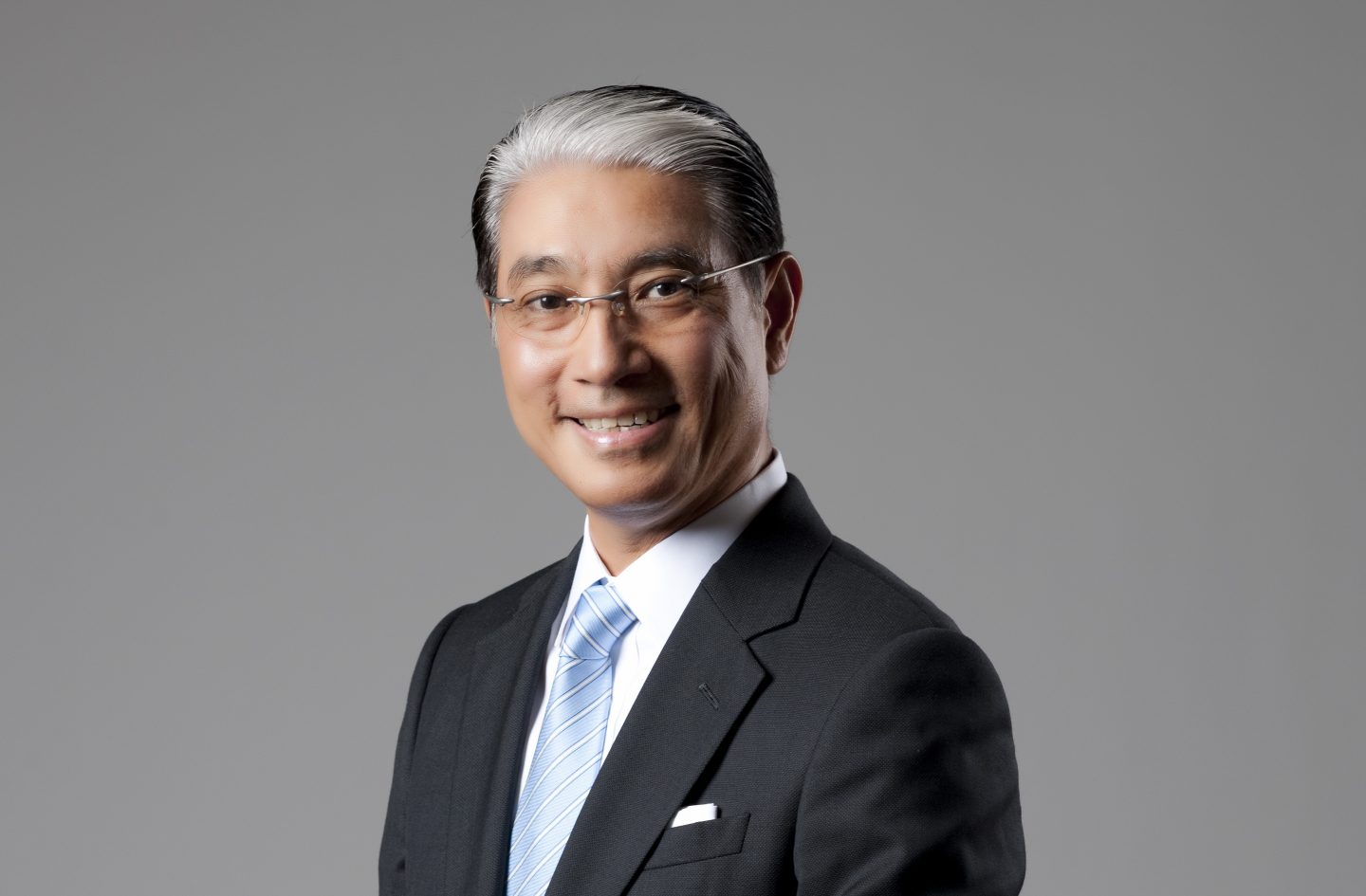Should we work towards success? Lucas Chow on being God’s trustee
by Karen Tan // June 12, 2018, 2:07 am

Lucas Chow’s professional career spans not one but several of the biggest names in Singapore’s corporate landscape, including Hewlett Packard, Singtel Mobile, Mediacorp and Far East Orchard.
So you won’t be faulted for thinking his work-life must have been plain-sailing.
However, even this top honcho had moments in his career when money was scarce, balance had to be figured out, and work was drudgery.
Salt&Light spoke to him about stewardship, work-life balance and how he overcame his low points, going on to flourish in his career.
Many Asians were brought up to see work as a means to an end; earn your money to have the life you want. What is your life experience?
I grew up in a humble family and was taught to earn respect through hard work and honesty. Education was the ticket to finding a good job and getting out of poverty.
Other than earning a salary, I also invested my savings and re-invested my earnings to build up my financial portfolio. Back then, the fear of not having enough money was always on my mind.
My views on money changed when I became a Christian in my forties. I was baptised in Wesley Methodist Church and have been a member of the church ever since. John Wesley’s teaching on work and money challenged me to rethink stewardship.
John Wesley preached three simple rules on money and good stewardship: Gain all you can, save all you can, give all you can.
John Wesley’s three simple rules on money and good stewardship: Gain all you can, save all you can, give all you can.
Regarding the first rule, “gain all you can”, it is not wrong to work hard and make money through honest labour. It is a way to provide for yourself and family and can be put to beneficial use to help others.
1 Timothy 5:8 says: “Anyone who does not provide for their relatives, and especially for their own household, has denied the faith and is worse than an unbeliever.” Therefore, making money to provide for yourself and your family is good.
However, if making money becomes an obsession and the sole reason for working, taking priority over everything else, then I think it becomes a problem.
The second rule – “save all you can”. Here, Wesley talks about not spending money on things that you don’t need and not to feed unnecessary desires.
I do put aside savings, so spending beyond my means is not a problem for me. But I must admit that I do “feed unnecessary desires”. There is always the temptation to get that extra shirt and pants with matching shoes or get the latest phone or gadget. With online shopping and marketing promotions, buying things that I do not need has become easier!
Am I acting like I owned the money, or am I acting like the Lord’s trustee?
John Wesley once asked Christians to consider this question before they spend money: Am I acting like I own the money, or am I acting like the Lord’s trustee?
With God’s grace, I am now more aware of how I should spend my money. I ask myself frequently John Wesley’s question and consider whether I need the item or service before I make the decision to purchase.
Nevertheless, I believe God is not a killjoy! He wants to bless us with abundance so that we can have comfortable and joyful living and be a blessing to others.
The third rule is “give all you can”. John Wesley provided an example of setting a budget for his annual living expenses and giving away the rest of the money he earned.
Planning for my retirement made me rethink about my income and expenses. That would be the first time in my life without a regular income. Instead, I would have to rely on God’s provision.
It is the practice of our church to have an annual pledging-of-tithe exercise for planning and budgeting purposes. I recall discussing with my wife when I first retired what sum to pledge. This wasn’t a problem in the past as I knew my regular income and just had to apply a 10% number to it. But with no monthly income, what was I supposed to tithe?
God is more generous than I ever can imagine, and He provides abundantly.
One morning in my quiet time, I was reminded that God had already provided for my retirement. Although it was not considered a regular or monthly income, He had blessed me sufficiently. Hence, I did a projection of what I expected to receive in the coming year and pledged 10% of it.
In the following months, I kept track of the money I received and tithed 10% of it. I had earlier thought my projection was too optimistic but when I totalled up my tithe giving a year later, it exceeded my earlier projection!
The lesson I learned here is that God is more generous than I ever can imagine, and He will provide for me abundantly.
I then started to set aside money for charity and other worthy causes. Although not intentional, an interesting side benefit that I got was not having to pay income tax because of the tax deduction gained from the charity giving!
From my experience, instead of spending the money on myself, using it to help others who are in need brings greater and more lasting joy. It also helps me to view my own situation in a better light. Instead of self-pity, I see how blessed I am to be in a position to give.
There must have been times in your career when you dreaded the work, how did you overcome it?
Just like everyone else, my work is not always pleasant. Difficult colleagues and bosses, tough assignments with limited resources, feeling unfairly treated, the list goes on. In fact, there have been times when I didn’t even agree with what I was asked to do!
During times like these, my first response was prayer and spending some quiet time with the Lord by reading His word. This helped me keep things in the right perspective.
When I had to work with difficult and unfair bosses, I remind myself that God had put them as an authority over me.
Once, I had to work with a difficult colleague who had been spreading rumours about me. In my quiet time, I was reminded that God loves us regardless of how bad we are, and we, in turn, must love others. That means even if my colleague was tough to love, I had to.
God showed me His grace and reminded me that I am to follow His example to show grace to others. Besides, in that incident even if everyone believed in the false rumours and lies, God knows the truth. That gave me comfort and helped me have the right attitude when I worked with the individual.
There were other times that I had to work with bosses who I thought were difficult and unfair. I had to remind myself that God had put them as an authority over me and I had to submit. In times like this, I would recite Colossians 3: 23-24.
Of course, there were simply times that I just don’t feel like going to work and felt that the enthusiasm for the job had gone out the window. Then, I would pray for God’s mercies and help to pull myself together so that I can deliver my work commitments and find the right motivation to continue.
I had my fair share of days when I just had to keep my head down, put my shoulder to the wheel. Putting my trust and hope in the Lord, knowing that He always wants the best for me, helped me.
How would you advise someone who is starting out to view the job or career?
Many people have asked me the question of how to have a successful career. Let’s first define success. My own definition is: Success is like beauty, it’s all in the eye of the beholder. You are successful when you are happy.
To be happy and successful, we need to know what we value and what are the priorities in our lives. I would suggest listing them down and reviewing them at least once a year. This is because our priorities can change with time and age.
When I had a young family, they required more of my attention and I had to set aside time for them. But now I am an empty nester, my priorities have changed.
To me, work-life balance is not what is in the middle. You have a balanced life when you are happy.
After knowing your priorities, check if you are allocating time to your priorities. Time is finite; we need to spend our time wisely. If spending time with your family and friends is of higher priority than work and career, you will not be very happy if you had to stay back at work, hoping to get ahead, while missing out on a family or friend’s birthday gathering.
The flip side is also true: If building a career at this stage of your life is more important, you would not be very happy partying while thinking about work.
We often talk about work-life balance. To me, balance is not what is in the middle. You have a balanced life when you are happy. It will require compromises and sacrifices so that the most important things are taken care of.
No one can fit everything in. It’s like a treasure box. The size is fixed, you must decide what you want to put in and what not.
We are an independent, non-profit organisation that relies on the generosity of our readers, such as yourself, to continue serving the kingdom. Every dollar donated goes directly back into our editorial coverage.
Would you consider partnering with us in our kingdom work by supporting us financially, either as a one-off donation, or a recurring pledge?
Support Salt&Light


